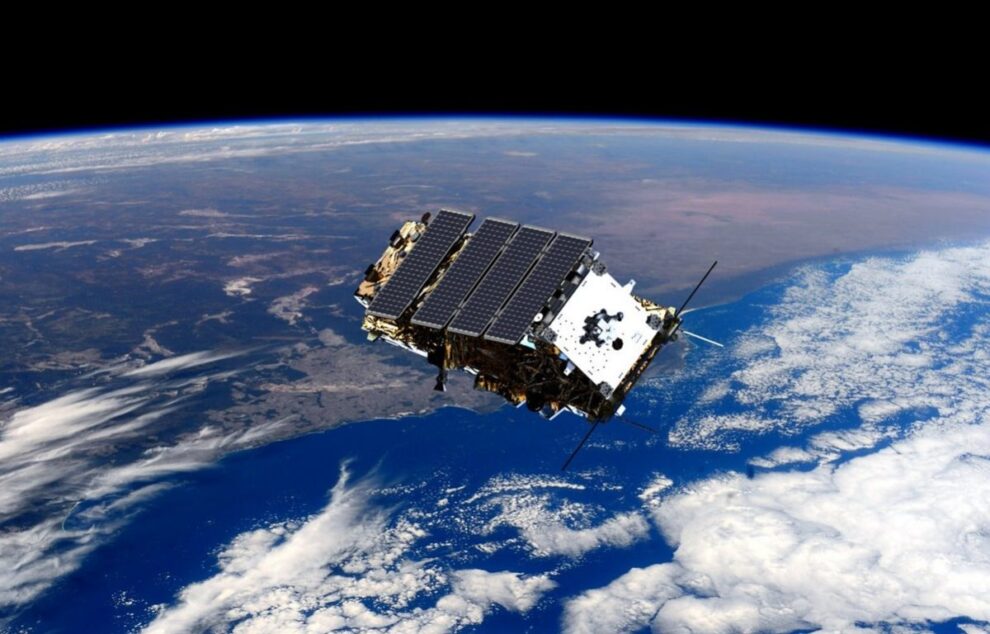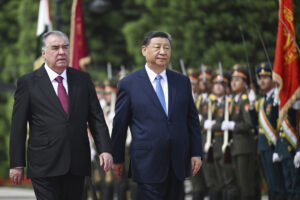Industry and Science Minister Ed Husic has announced that the government has cancelled the National Space Mission for Earth Observation (NSMEO) program, which was set to be an Australian satellite system used for earth observation of disasters, agriculture, weather, resources, and marine and vegetation surveillance.
NSMEO was established by the then-outgoing Morrison government in early 2022 to launch four Australian-owned satellites, but the program’s cancellation appears to be part of a larger turn away from developing Australian space capabilities by the Labor government.
In March 2022, then LNP Industry Minister Melissa Price said NSMEO would invest $1.16 billion to 2038-39 for the first phase of a National Space Mission for Earth Observation to design, build, and operate four new satellites.
“The information we get from Earth observation satellites is central to our everyday life – from forecasting the weather and responding to natural disasters through to managing the environment and supporting our farmers,” she said.
“This is an investment both for the now and the future of the Australian space sector,” she added. “Developing and launching these first four Australian satellites will create the foundation of industry know-how for more complex space missions next decade. That means more expertise and more jobs right here in Australia in this critical industry.”
Some of the disasters the program could have responded to include damage assessments following bushfires and floods, both of which remain fresh in the minds of many Australians at the moment. The satellites’ sensors would likely have been able to assess damaged areas in multiple spectrums, giving accurate data on how to better protect affected areas in the future.
They could also be used to measure the effects of climate change, especially in coastal regions where the effects of erosion, vegetation changes, and urban or industrial encroachment can be accurately measured and mapped.
But Minister Husic said on Thursday that, despite valuing “the role our space sector plays”, the Labor government would not proceed with the NSMEO program, and said the government has instead re-prioritised $452.4 million over the budget forward estimates to assist with budget repair.
He stressed that no tenders had gone to market and no contracts had been signed, but it understood about 30 staff will be impacted by the cancellation. He said Australia currently relies on earth observation data provided by international partners, both government-owned and commercial, and this arrangement will continue to meet current and future needs.
Mr Husic said the government remains committed to the space sector, saying, “That’s why in our recent budget we placed the Australian Space Agency on a sustainable financial footing.”
But in May’s budget the government also cancelled other space initiatives including the Australian Spaceports program, which would have seen the government co-invest in Australia become a location for spaceports and launch sites, and two other space programs.
In an Australian Strategic Policy Institute (ASPI) The Strategist paper posted on Thursday afternoon, analyst Bec Shrimpton suggested Australia’s “space future is at risk”.
“A national space mission is vital to any country that is serious about space,” she said. “It can provide an organising concept for industry and certainty of funding and demand for space services, including satellites, payloads, launch facilities, data management from orbit and earth, and mission control. It enables a joined-up approach to developing the skillset necessary across government and the private sector for more complex missions.
She said the NSMEO could have helped Australian companies to keep pace with global standards and retain an ability to insert themselves into a booming industry with has been estimated to be worth more than US$1.5 trillion before 2040. “That opportunity has been lost,” she said.
“If we fail to recognise the opportunities in space, our economy—and security—will be left in the dust. Nations that do not share our interests and can actively use space to threaten us are moving apace in all areas of space development. We cannot afford to leave the competition in this key domain, which has a direct effect on Australia, to others. Space is the ultimate high ground.”
In a 30 June statement, the Space Industry Association of Australia (SIAA) said it was intensely disappointed at the decision to abolish Australia’s first national space mission.
“As a whole-of-government program, the NSMEO would have provided sovereign Australian satellites to provide this data precisely when needed by government agencies and departments, including the Bureau of Meteorology, Geoscience Australia, and Defence,” SIAA chair Jeremy Hallett said.
“The mission would have showed international partners that Australia is serious about contributing international efforts to measure and mitigate the effects of climate change which severely threaten our immediate region.
“It cannot be overlooked that every major economy in the world is investing in sovereign space capability because they can see where the future is headed and how critical space infrastructure underpins security, the economy, and climate measurement and mitigation,” he added.
“Space is a critical part of the government’s discussions as part of AUKUS and the Quad.”
Source : Riotact















